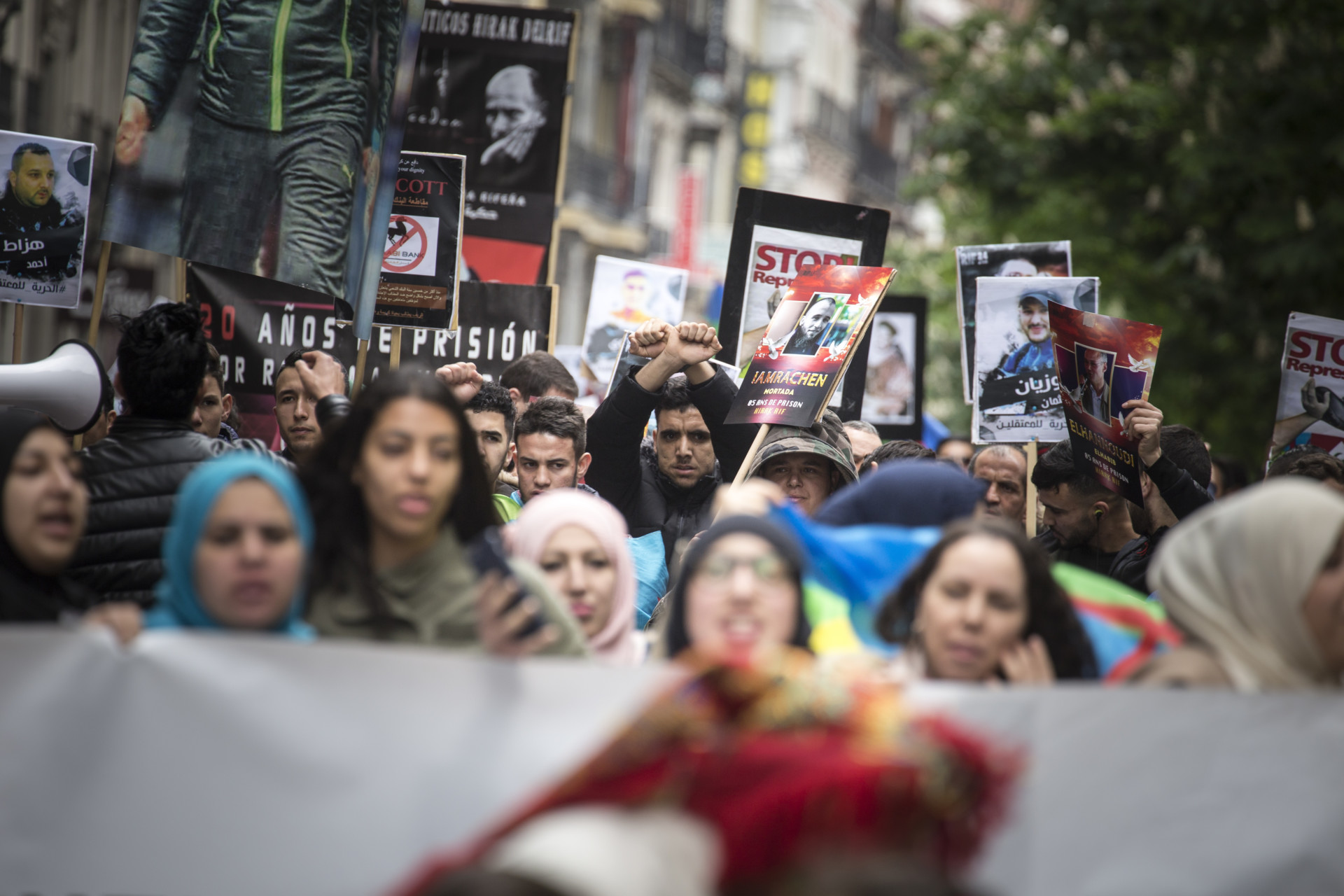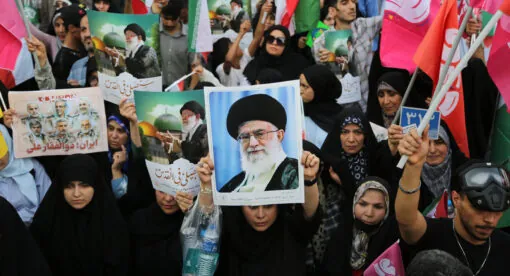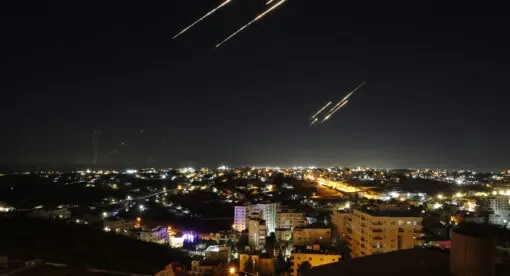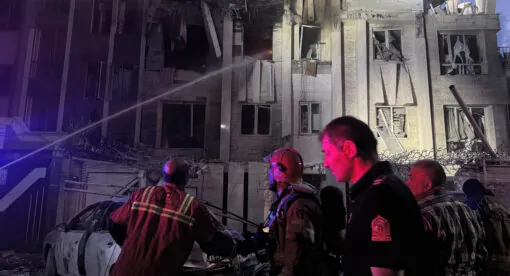Security institutions in Morocco have grown significantly in power in recent years, and that growth has coincided with a shift in focus to targeting journalists and human rights activists. Under the leadership of King Mohammed VI, these forces remain beyond the control and oversight of elected institutions, seriously limiting progress toward democratization. In the coming years and ahead of the 2021 parliamentary elections, the future of genuine political change in Morocco will rest on reining in the country’s security forces.
This security apparatus has benefited for years from alliances with international actors, particularly the United States, with which it has partnerships spanning from police training to arms agreements. Amid the ongoing crackdown on critical voices, U.S. policymakers should revisit the standards of security partnerships with Morocco to emphasize and ensure the safeguarding of human rights, along with mechanisms for accountability.
For years since the rise of ISIS, Morocco was one of the few countries in the region to boast no ISIS-related attacks. That streak came to an end late December 2018 when the decapitated bodies of two Scandinavian hikers were found in a small town near the tourist hub of Marrakech. Not only would this incident tarnish the image of Morocco as immune from ISIS attacks, it also would mark a turning point in the growing power of security agencies under the Ministry of Interior.
Since late 2018, Morocco has seen the steady erosion of rights and freedoms. Between well-coordinated media campaigns, surveillance, arrests, charges, and prison sentences, the Ministry of Interior has exploited its growing power, and concern over national security, as a pretext for increasingly authoritarian behavior.
Security Forces’ Growing Power
While Morocco has not experienced the same degree of political upheaval and meltdown of state power as some of its neighbors since 2011, it has nonetheless seen similar trends in employing its security apparatus to maintain regime stability. When protests began with the February 20 Movement of 2011, King Mohammed swiftly addressed popular demands by amending the country’s constitution to offer nominal democratic concessions. But it was not just the constitution that saw an overhaul: Toward the end of April 2011, a deadly attack on a café in Djemaa El Fna, a popular area where tourists gather in Marrakech, claimed the lives of 15 people, many of whom were foreigners, and soon after the attack, Moroccan police escalated their repression of protests, using violent means to disperse crowds that caused many injuries, some life threatening.
Months after the new constitution was promulgated in July 2011 and before parliamentary elections in November 2011, a new law expanded the title of officers in Morocco’s domestic intelligence agency, the General Directorate for Territorial Surveillance (DGST), to “judiciary police.” On paper and along with the 2011 constitution, observers and Moroccan media characterized this new law as a reform measure because it was supposed to enable greater public oversight of one of Morocco’s most secretive institutions. In reality, however, this new law would be one of many changes that placed the Ministry of Interior outside the control of elected institutions.
By 2015, when the threat of ISIS was peaking, DGST head Abdellatif Hammouchi was appointed to head Morocco’s national police force, the General Directorate for National Security (DGSN). That same year, the Central Bureau of Judicial Investigations, dubbed the “Moroccan FBI,” was established under the oversight of the DGST, with a headquarters in Salé near where suspected terrorists are charged and imprisoned. In 2016, Hammouchi was credited with implementing a major overhaul of the police force, including the installation of 900 security cameras across the country and digitization of police records.
The Central Bureau of Judicial Investigations reports to the DGST; the DGST and DGSN report to the Ministry of Interior. While Interior Minister Abdelouafi Laftit nominally sits on the government cabinet, he is one of few ministers appointed by the palace with no political party affiliation. From the lowest-ranking officers to the hierarchy of officials up to the minister himself, the Ministry of Interior is entirely independent of party politics and elected institutions. For several years, King Mohammed singled out the Ministry of Interior in royal speeches, showering the country’s security forces with praise.
Silencing Dissent
This royal praise coincided with the mounting repression of the Hirak Movement, protests against corruption and brutality that began in the northern Rif region after fish vendor Mouhcine Fikri was crushed to death inside a garbage truck on police orders. After Fikri’s killing, the protests spread across the country, tapping into popular frustrations among Moroccans at the government’s poor governance and increasing repression. But by mid-2019, the authorities had officially quashed the movement and upheld the 20-year prison sentences of the movement’s leaders. Security forces then began to turn their attention to silencing other critical voices, including journalist Taoufik Bouachrine, journalist Hajar Raissouni, and rapper Lgnawi, among others. By February 2020, the ongoing arrests of critical voices solicited the condemnation of Human Rights Watch, which documented the numerous charges filed against dissenters.
The latest target has been journalist and activist Omar Radi. Radi already faced arrest in December 2019 over a tweet where he criticized a judge’s verdict against Hirak Movement activists, after which he was charged and sentenced for “insulting a public servant.” Then on June 22, Amnesty International published a report revealing findings that Radi’s phone had been compromised by spyware from NSO Group, the Israeli firm that has become a subject of controversy for having sold technology to notorious rights abusers like Saudi Arabia. Prior to these revelations, Morocco had an established record of using spyware to target activists and journalists, including members of citizen media collective Mamfakinch, historian Maati Monjib, and lawyer Abdessadak El Bouchattaoui, among others. Instead of responding to the concerning details of the report, media outlets with close ties to security services began publishing a series of articles that defamed Radi and disclosed private information from his personal life from people close to him. Also since the report’s publication, Radi has been called to appear for interrogation eight times on allegations of espionage. While Radi is yet to be formally charged, the investigation remains open, and he continues to be summoned to questioning in what organizations and human rights officials have widely condemned as the state’s ongoing harassment of yet another journalist and activist.
Radi’s case, and those that came before him, indicate that Morocco’s vision of preserving national security comes at the expense of constraining rights and freedoms. These worrying developments are becoming even more relevant in light of Morocco’s growing collaboration with international intelligence and security agencies — especially the United States, France, and Spain. The growing powers of the Ministry of Interior — a ministry whose leaders are appointed by the palace and entirely independent of elections and party politics — stand at odds with the seemingly negligible powers that the 2011 constitution was believed to have granted to elected institutions. Sitting at the top is a monarchy that continues to treat dissent as a national security threat and respond with repression instead of heeding the recurring demands for change emanating from society. Eventually, Morocco (and its international partners) will have to contend with the human costs of national security as the country’s much-needed independent and critical voices continue to be silenced.
Samia Errazzouki is currently pursuing her PhD in the Department of History at the University of California – Davis and a co-editor with Jadaliyya. Ms. Errazzouki previously worked as a journalist based in Morocco, reporting for the Associated Press, and later with Reuters. She Tweets at @S_Errazzouki.
The views expressed in this article are those of the author and not an official policy or position of the Newlines Institute.






